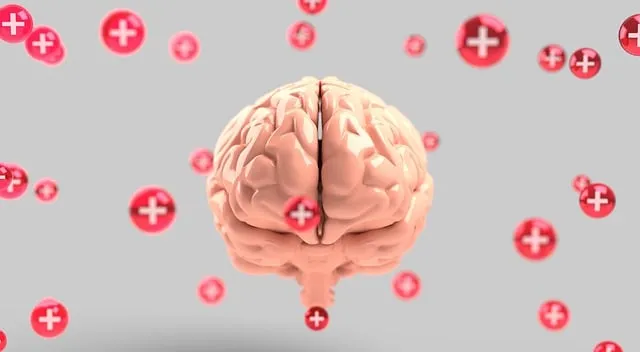Risk assessment is a cornerstone of creating safe, supportive environments in behavioral health settings like Kaiser Permanente's dedicated phone line in Westminster. By identifying potential harms and implementing tailored strategies, organizations ensure healing and recovery for patients facing mental illness, addiction, or trauma. This includes crisis intervention, evidence-based practices, cultural competency training, and proactive measures to address social determinants of health. Continuous monitoring and evaluation are crucial to maintain the effectiveness of these strategies, incorporating community outreach and burnout prevention for healthcare workers. Reaching out to the Kaiser Permanente behavioral health phone number in Westminster is a vital step towards navigating mental health challenges with enhanced support and understanding.
Risk assessment and harm minimization planning are vital components in creating safe environments, especially within healthcare settings like Kaiser Permanente Behavioral Health. This article explores these critical processes, offering a comprehensive guide for professionals aiming to protect vulnerable populations. From understanding risk assessment as a cornerstone of safety to developing and implementing harm minimization plans, we delve into essential strategies. Additionally, we highlight the importance of access to support services, such as the Kaiser Permanente Behavioral Health phone number in Westminster, in fostering effective risk management.
- Understanding Risk Assessment: A Cornerstone of Safe Environments
- Kaiser Permanente Behavioral Health Phone Number Westminster: Accessing Support Services
- Identifying Harms and Vulnerabilities: Mapping the Landscape
- Developing a Comprehensive Harm Minimization Plan
- Implementation and Monitoring: Ensuring Continuous Improvement
Understanding Risk Assessment: A Cornerstone of Safe Environments

Risk assessment is a fundamental process in creating safe and supportive environments, especially within behavioral health settings like those offered by Kaiser Permanente behavioral health phone number Westminster. It involves identifying potential hazards or risks that may cause harm to individuals and then implementing strategies to minimize or eliminate these risks. By thoroughly assessing and managing risks, organizations can foster an environment conducive to healing and recovery.
This process is crucial in behavioral health care, where individuals often face complex challenges such as mental illness, addiction, or trauma. Effective risk assessment enables healthcare providers to offer tailored support and interventions. For instance, identifying potential triggers for self-harm or suicide attempts allows for proactive measures like enhancing surveillance, providing crisis intervention training to staff, and implementing evidence-based practices for stress management and resilience building. Additionally, cultural competency training ensures that caregivers can address the unique needs of diverse patient populations, thereby improving overall care quality.
Kaiser Permanente Behavioral Health Phone Number Westminster: Accessing Support Services

At Kaiser Permanente Behavioral Health, support services are readily available for those seeking assistance with mental illness and stigma reduction efforts. The dedicated phone line, specifically catering to the Westminster community, offers a confidential space for individuals to reach out and connect with professionals. By dialing the Kaiser Permanente behavioral health phone number Westminster, you gain access to a network of experts who can provide guidance and support tailored to your needs.
This initiative is part of a broader strategy to promote well-being and foster communities that cultivate compassion. Through these services, individuals can explore various methods to enhance their mental resilience, including confidence-boosting techniques and compassion cultivation practices. By reaching out, one can take the first step towards navigating challenges related to mental health with increased support and understanding.
Identifying Harms and Vulnerabilities: Mapping the Landscape

Identifying potential harms and vulnerabilities is a fundamental step in risk assessment, especially when focusing on behavioral health services. This process involves mapping out various factors that could negatively impact individuals seeking support from organizations like Kaiser Permanente’s behavioral health phone number in Westminster. By thoroughly examining these elements, professionals can develop comprehensive strategies to mitigate risks and promote emotional well-being.
The “landscape” of harm includes social determinants of health, such as economic disparities, access to resources, and community support systems. Understanding these factors helps in tailoring interventions, like Conflict Resolution Techniques and Mental Health Education Programs Design, to address specific challenges faced by vulnerable populations. This proactive approach ensures that services are not just accessible but also effective in enhancing the overall mental health and resilience of individuals within their unique social contexts.
Developing a Comprehensive Harm Minimization Plan

Developing a comprehensive harm minimization plan involves several strategic steps. It begins with identifying potential risks and hazards within various aspects of life, including mental wellness and stress reduction methods. Individuals seeking support can reach out to trusted resources like the Kaiser Permanente behavioral health phone number in Westminster for guidance. This initial step is crucial as it lays the foundation for effective interventions.
By assessing these factors, one can design tailored strategies to mitigate risks and promote a sense of confidence boosting. The plan should encompass practical solutions and coping mechanisms tailored to individual needs. It encourages proactive measures to navigate challenges and foster resilience, ensuring overall well-being. This holistic approach leverages resources like the Kaiser Permanente behavioral health hotline to create a supportive network, enhancing one’s ability to manage and prevent potential harm.
Implementation and Monitoring: Ensuring Continuous Improvement

The successful implementation of risk assessment and harm minimization planning involves ongoing monitoring and evaluation. This continuous improvement process is crucial to ensure that strategies remain effective and relevant, particularly in dynamic healthcare environments like Kaiser Permanente behavioral health phone services in Westminster. Regular reviews allow for adjustments based on emerging trends, new research findings, and feedback from both patients and healthcare providers.
A key aspect of this monitoring is the integration of community outreach programs aimed at mental health awareness. By engaging with local communities, healthcare providers can better understand the unique challenges faced by diverse populations, leading to more tailored interventions. Additionally, burnout prevention strategies for healthcare providers should be regularly assessed and updated to address the evolving demands of patient care, thereby enhancing overall service quality and employee well-being.
Risk assessment and harm minimization planning are vital components in creating safe environments, especially within healthcare settings. By understanding risk assessment as a cornerstone of safety, utilizing support services like the Kaiser Permanente Behavioral Health Phone Number Westminster, and implementing comprehensive plans, we can identify and mitigate potential harms. This strategic approach ensures that vulnerabilities are addressed and continuous improvement is fostered, ultimately enhancing the well-being of individuals and communities.






